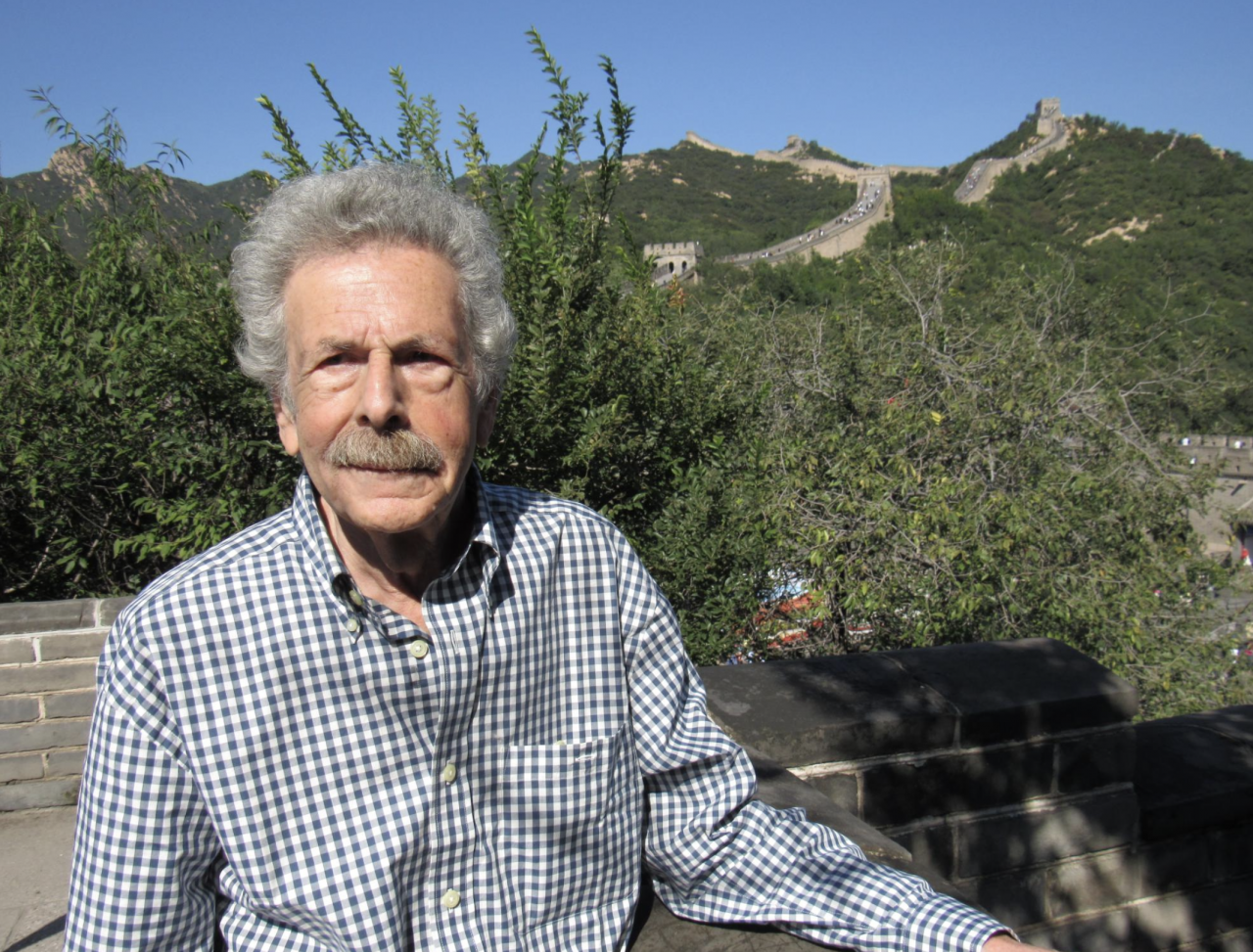June 12, 2024
University mourns loss of Evan Pugh University Professor Emeritus Anthony Cutler

Dr. Anthony Cutler, Evan Pugh University Professor Emeritus of Art History, died on May 16, 2024, at age 90. A member of the Penn State faculty for 51 years, Dr. Cutler was an international leader in the field of Byzantine studies and particularly renowned for his expertise in Byzantine ivory carvings.
Dr. Cutler’s numerous accolades and prolific writing reflect his eminence in his field, as well as his commitment to making the art of the Byzantine Empire both accessible and meaningful to contemporary audiences. He educated multiple generations in the value of art and the importance of understanding the aesthetic expression of diverse cultures.
Dr. Cutler was honored by some of the most prestigious universities and institutions in the world. In 2012, he was appointed Slade Professor of Fine Art at Oxford University, one of the most distinguished honors in the field of art history. Other international honors included the François 1er Medal from the Collège de France, the Humboldt Prize and a Guggenheim Fellowship. He held appointments as Professeur invité at the Sorbonne and was a permanent Fellow of the Medieval Academy.
“Tony was an insistently curious person, always keen to incorporate new ideas, push the boundaries of inquiry and ask interesting questions,” said Robin Thomas, professor and head of the Department of Art History. “His career was shaped by this inquisitiveness, and it had an important influence on our department.”
Dr. Cutler authored, co-authored or co-edited 16 books, and published more than 157 articles. Many of those publications were in languages other than English, making his research accessible to a wider audience. His scholarship in the area of Byzantine ivory carvings is exemplified by his book, The Hand of the Master: Craftsmanship, Ivory and Society in Byzantium (9th–11th Centuries), published in 1994.
“A scholar of deep learning and exceptional range, Tony Cutler piloted the ‘material turn’ in art history with his The Hand of the Master and The Craft of Ivory [booklet published in 1985], in which he demonstrated that the matter and making of medieval works of art bore meaning,” said Herbert L. Kessler, professor emeritus of the history of art at Johns Hopkins University.
Later in his career Dr. Cutler began pioneering research on gift exchange between Byzantium and the Islamic world, drawing from fields such as anthropology while taking an interdisciplinary approach to cultural history. At the time of his death, he was working on the book The Empire of Things: Gift Exchange in Byzantium, Islam and Beyond.
Dr. Cutler regularly lent his expertise to museums, and even served on the organizing committee of the major 2008–09 exhibition at the Royal Academy, Byzantium 330–1453. He was the art history editor for the monumental, three-volume Oxford Dictionary of Byzantium, which was awarded the Hawkins Prize from the American Publishers Association in 1992.
Dr. Cutler’s research was supported by the American School of Classical Studies at Athens; Harvard University’s Dumbarton Oaks Research Library and Collections in Washington, D.C.; Corpus Christi College at Cambridge; the Institute for Research in the Humanities at the University of Wisconsin–Madison; the Institute for Advanced Study at Princeton; the American Academy in Rome; the Center for Advanced Study in the Visual Arts at the National Gallery in Washington, D.C.; the University of Chicago; the John Simon Guggenheim Foundation; the Metropolitan Museum of Art in New York; and the Aga Khan Program for Islamic Architecture.
Born and raised in London, Dr. Cutler earned B.A. and M.A. degrees at Trinity College, Cambridge. After pursuing further studies in Naples and Belgrade, he completed his Ph.D. at Emory University in Atlanta. He joined the Penn State faculty in 1967, and was named an Evan Pugh University Professor in 2004, the highest academic distinction bestowed by the University.
B. Stephen Carpenter II, Michael J. and Aimee Rusinko Kakos Dean in the College of Arts and Architecture, said Dr. Cutler’s contributions in Byzantine studies established him as one of the most notable scholars in the field, while his teaching at Penn State established him as a respected educator to generations of students.
“I cannot overstate Tony’s influence as a scholar, educator and colleague. He brought increased international attention to Penn State and the Department of Art History through his research and writing,” said Carpenter. “The professional success of his former students is an additional testament to the impact he has made.”